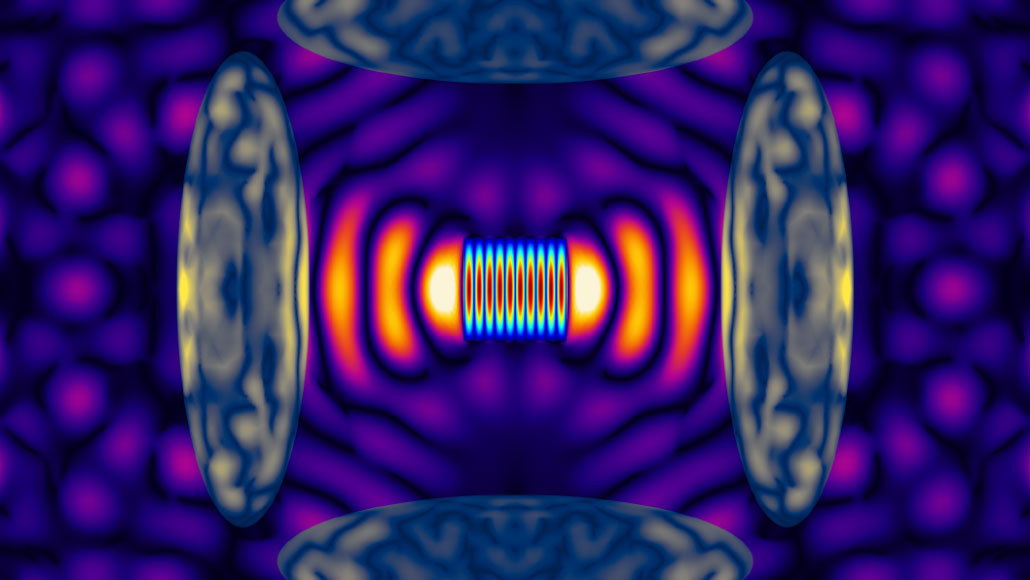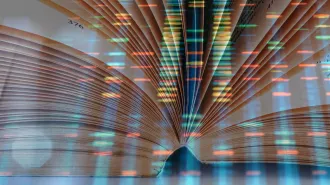
A new thermometer takes the temperature of objects by sensing sounds that the objects give off when they get hot. In this simulation, a sheet of silicon nitride (center) detects sound waves from hot blobs of epoxy (ovals at top, bottom, left and right).
R. Singh and T. Purdy/Physical Review Letters 2020





